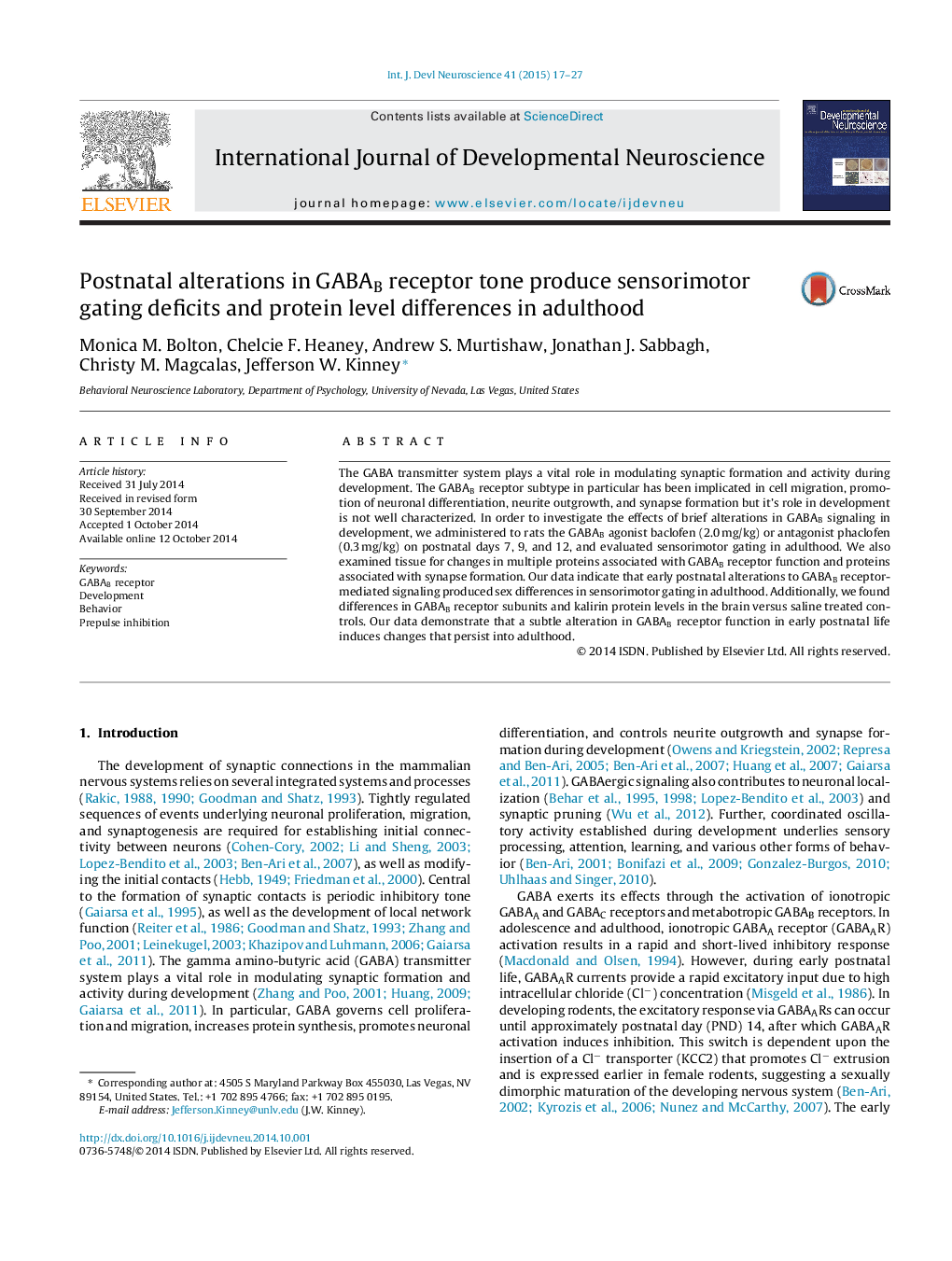| Article ID | Journal | Published Year | Pages | File Type |
|---|---|---|---|---|
| 5893860 | International Journal of Developmental Neuroscience | 2015 | 11 Pages |
â¢GABAB agonist or antagonist on PND 7, 9, and 12 produced PPI deficits in adulthood.â¢Proteins associated with GABA signaling and plasticity were altered in adulthood.â¢Differences in the effects of the GABAB ligands were observed between genders.
The GABA transmitter system plays a vital role in modulating synaptic formation and activity during development. The GABAB receptor subtype in particular has been implicated in cell migration, promotion of neuronal differentiation, neurite outgrowth, and synapse formation but it's role in development is not well characterized. In order to investigate the effects of brief alterations in GABAB signaling in development, we administered to rats the GABAB agonist baclofen (2.0Â mg/kg) or antagonist phaclofen (0.3Â mg/kg) on postnatal days 7, 9, and 12, and evaluated sensorimotor gating in adulthood. We also examined tissue for changes in multiple proteins associated with GABAB receptor function and proteins associated with synapse formation. Our data indicate that early postnatal alterations to GABAB receptor-mediated signaling produced sex differences in sensorimotor gating in adulthood. Additionally, we found differences in GABAB receptor subunits and kalirin protein levels in the brain versus saline treated controls. Our data demonstrate that a subtle alteration in GABAB receptor function in early postnatal life induces changes that persist into adulthood.
